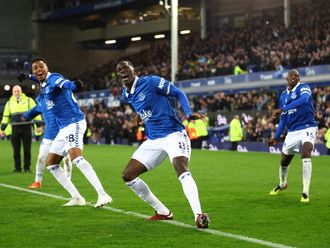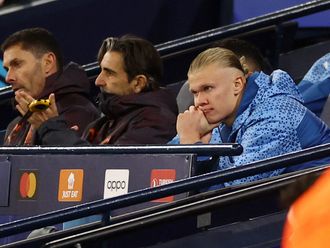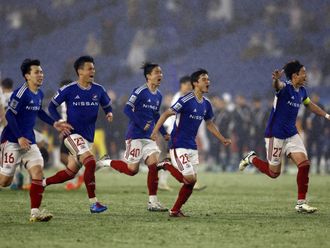Moscow: Twelve venues, located in 11 Russian cities, will host the 2018 World Cup, with Moscow having two venues and outsider Saransk making the final list as Krasnodar and Yaroslavl missed out.
The other cities chosen are St Petersburg, Kaliningrad, Nizhny Novgorod, Kazan, Samara, Volgograd, Rostov, Sochi and Yekaterinburg after the list was confirmed by Fifa president Sepp Blatter and organisers during a live television show.
Moscow’s 90,000-seat Luzhniki stadium will stage the final and a 45,000-seat arena being built by the Spartak club in the capital will also host matches during the month-long finals.
“It will be the first World Cup to be held in Eastern Europe and in Russia. I think Russia will have the best World Cup in history,” Blatter said earlier, lavishing praise on the hosts.
“I say you already deserve ten out of ten.”
Saransk, smallest of the contenders and with little football tradition, was considered an outsider along with Yaroslavl but made the list at the expense of the southern city of Krasnodar.
Krasnodar, which boasts two clubs, FK Krasnodar and Kuban, in Russia’s top flight, was shocked by the decision.
“This is unbelievable. They kicked out Krasnodar — the most passionate football city in Russia,” FK Krasnodar’s billionaire owner Sergei Galitsky wrote in his Twitter account.
Kuban boss Suren Mkrtychan added: “There must be a logic in that decision, but I just don’t understand it. I’m in shock!”
The venues are grouped into four geographical clusters: central, based around Moscow; northern, involving St Petersburg and Kaliningrad; the Volga region, with Kazan, Nizhny Novgorod, Samara, Saransk and Volgograd; and south, with Sochi and Rostov.
Yekaterinburg, located at the foot of the Ural mountains near the Europe-Asia border, about 1,800km from Moscow, is in a separate group because of its remoteness from the other venues.
“The announcement of the host cities is the first step taken in the delivery of the 2018 Fifa World Cup,” Blatter told an audience that included high-profile guests.
‘Very pleased’
They included Russia coach Fabio Capello and Roberto Carlos, Brazil’s 2002 World Cup winner who now works for wealthy Russian Premier League club Anzhi Makhachkala.
“We are very pleased with the pace of the Local Organising Committee (LOC) from day one, when they were awarded the hosting of the event in December 2010,” added Blatter, who also praised Russian President Vladimir Putin for his support.
“I’m convinced it will be a great success because not only the people and youth are behind it but also the president.”
Putin, then the Prime Minister, was widely credited with helping the world’s largest country win the right to stage the sport’s biggest event when it beat England and joint bids from Spain/Portugal and Belgium/Netherlands in 2010.
“The World Cup is a good cause to get many young people involved in sports, to take them away from alcohol and tobacco,” Putin said in a televised interview with Channel One.
“We have worked extremely hard to bring the World Cup to Russia. We made the first attempt back in 2005, and in 2008 we decided to make an official bid.”
Asked about his role in the bidding process, Putin said: “We were told that if the country’s leaders would not get involved, we would lose.
“Of course, there was a risk in losing and I understood that. But if you want to win, you must take the risk,” he added.










